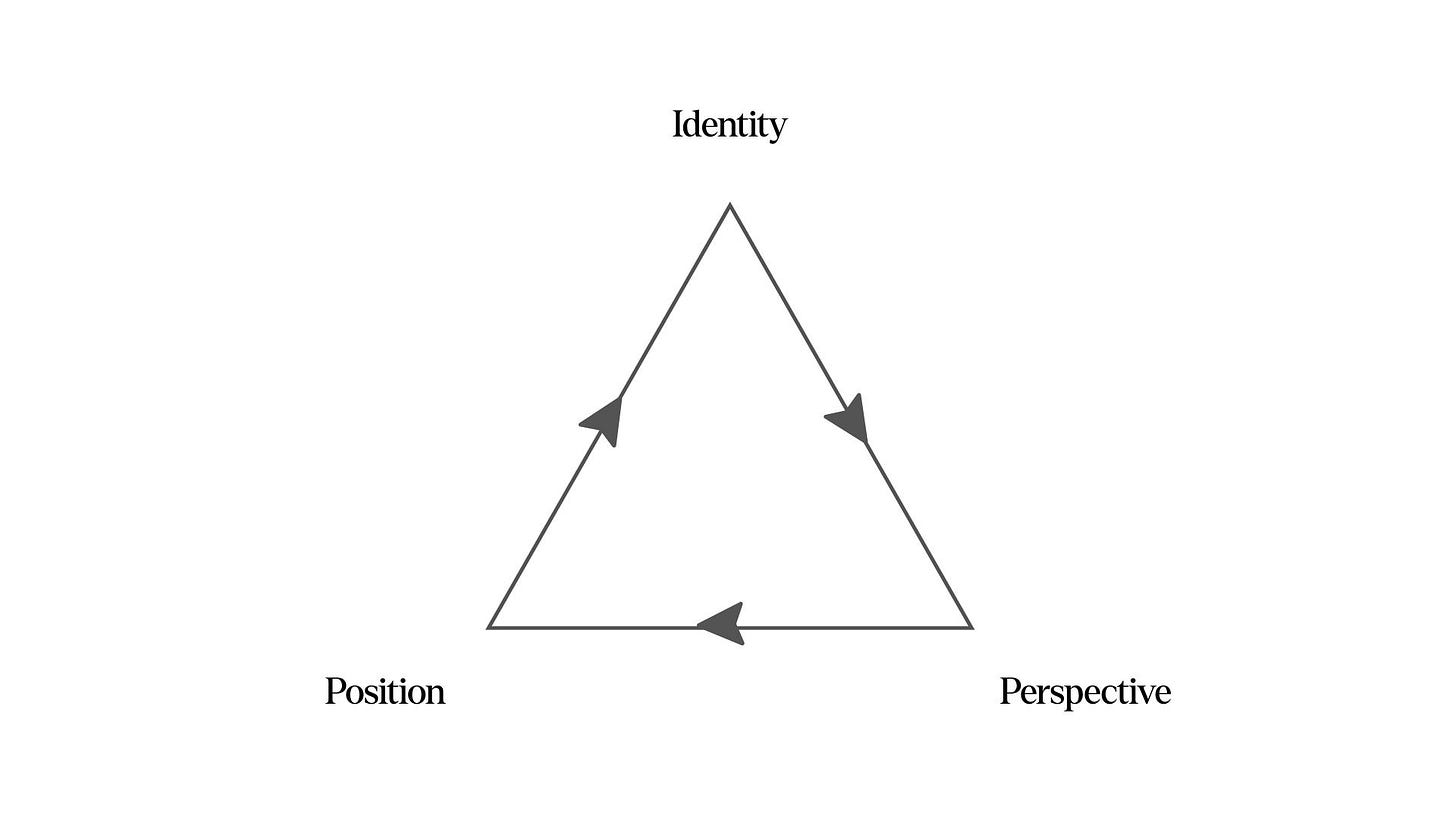Most businesses don't know who they are. They just know who they think they should be.
Every industry has an invisible standard. Law firms have “law firm behavior.” Consultants have “consultant behavior.” Tech companies have “tech behavior.”
We have entire industries filled with businesses that look, sound, and operate identically.
The real competition isn't for market share. It's for mental real estate.
The Epidemic
Walk into any industry conference. Listen to the pitches. Read the websites.
Everyone sounds exactly the same.
It's not that these businesses are lying. It's that they've never asked themselves who they actually are underneath the industry mask.
They've adopted the template of "how businesses in this space should act" without ever contemplating what makes them distinct.
Marketing ultimately feels like performance—because it literally is one.
The Status Quo
Most advice tells you to adapt your identity to market demands.
Identity-driven businesses do the opposite. They're so clear about who they are that the market adapts to them.
This feels like a counterintuitive decision as it requires rejecting profitable opportunities that surface but ultimately don’t align. But that rejection is exactly what creates the conditions that sets everything else up for success.
The Pattern
The most successful businesses in every category have moved beyond marketing entirely. They've become so clear about who they are and what they do that the market organizes itself around them.
Apple doesn't market computers, they embody a worldview
Tesla doesn't market cars, they represent an inevitable future
Patagonia doesn't market outdoor gear, they stand for environmental responsibility
Most businesses are stuck in a wag the dog scenario—algorithm updates dictate their strategy, social media trends reshape their messaging, competitor moves force reactive pivots.
An operational nightmare.
Build around the market and you'll perpetually react to micro shifts. Build around yourself and you create the macro vision that makes the market organize around you.
The Reputation Model
Our perception of one another is shaped by the same basic framework, whether we realize it or not.
How people remember and understand you comes down to three interconnected elements:
Identity —> Who you are
Perspective —> How you think
Position —> Where you stand
Together, these three elements determine how you are perceived. Everything else is just an expression of what that looks like in different situations.
This creates a reinforcing system where each component informs and strengthens the others—for better or worse.
When your identity is unclear, you inadvertently reinforce uncertainty.
When your identity is clear, market position comes naturally. You're not choosing where to stand—you're standing where you naturally belong.
Businesses with a clear identity don't struggle with marketing because they're not trying to engineer perception—they're simply being themselves.
The Real Problem
Your identity isn't what you think you are. It's what you can't help but be.
But you can't communicate what you don't know. You can't position what you haven't defined. You can't attract the right people when you're not sure who you actually are.
Most businesses never ask:
“What are we trying to be that we’re not?”
Until you stop performing an identity you borrowed, you'll never build a reputation that's truly yours.
The Reality Check
When identity, perspective, and position are aligned the playing field becomes obvious.
Messaging becomes strategic. Decisions feel inevitable.
Marketing feels impossible when your identity is an illusion that exists only in a borrowed language and industry templates.
The moment you discover and define who you actually are—what you can't help but be—marketing stops feeling like performance and starts feeling like natural expression.
The businesses winning aren't the ones with better strategies or positioning statements.
They have unavoidable conclusions about who they are.
The Truth
That pesky marketing problem? It's an identity problem in disguise—and you can’t perform your way out of an identity problem.
Better campaigns won’t solve anything until you come to terms with who you actually are underneath everything you think you should be.
The moment your identity becomes clear, marketing becomes irrelevant.
Not because it’s not important but because the market starts doing your marketing for you.
Isn’t that ultimately the whole point of marketing?




